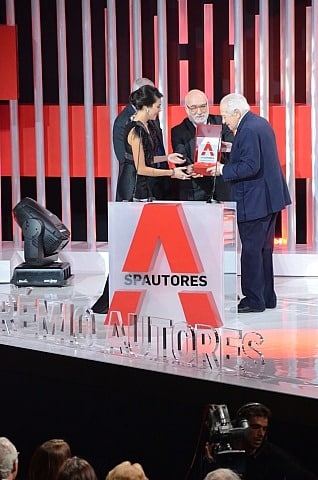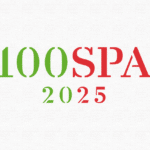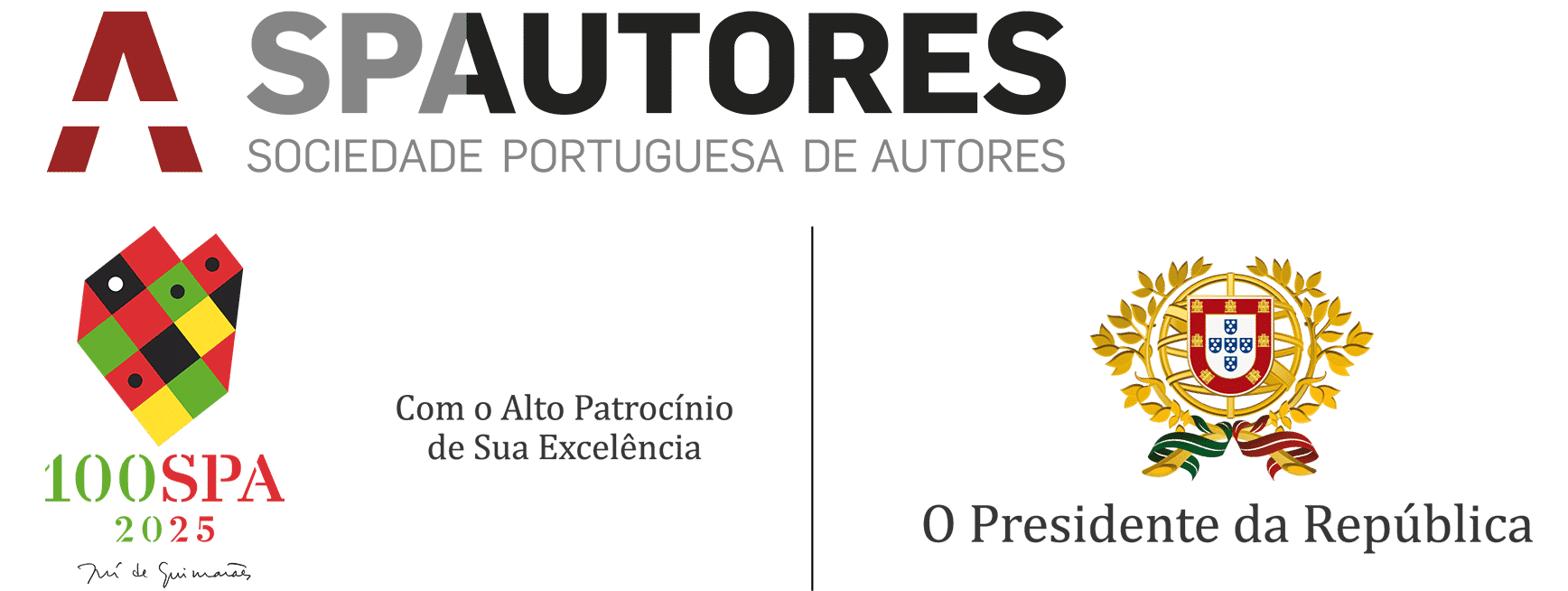SPA expresses its regret for the death of Dr. Mario Soares, who was three times Prime Minister of constitutional governments and twice President of the Republic, besides having also been a deputy, MEP and once again candidate for the Presidency of the Republic.
Mário Soares was always, before and after April 25th , a man of culture, and among his great long-time friends, since the time of resistance, we can count figures such as the painter Júlio Pomar. He said in an interview that he could have been a journalist or a writer, but being the son of João Soares, minister of a government of the Republic, he opted for the full exercise of politics, which earned him 12 prisons and deportation periods in São Tomé and Príncipe and in France. He was also always a friend of writers, such as Aquilino Ribeiro or Manuel Mendes.
Mário Soares was registered as an author in SPA on May 23rd, 1990 and was awarded the Life and Work Prize at the end of the annual gala of the cooperative held at the CCB in 2012. In his intervention on that occasion he emphasized the culture and artistic creation in the life of the country and mentioned the deep connections that he always had with this sector. While he was Prime Minister and President of the Republic he never moved away from the areas of thought and cultural and scientific life.
Mário Soares was the main political leader in the process of Portugal joining the EEC.
He died at the Red Cross Hospital in Lisbon after 26 days of internment.
Mário Soares was born in Lisbon in the parish of the heart of Jesus on the 7 December 1924, he graduated first in History-Philosophical Studies and later in Law, having been an attorney for long years, standing out for the defence of several political prisoners graciously, case of Octavio Pato, leader of the PC (Communist Party) . He was also a lawyer for the family of General Humberto Delgado following his assassination by PIDE in Spain in February 1965.
He was exiled in Paris, teaching in Vincennes. In Germany, with the support of Willy Brandt, he created the Socialist Party in April 1973, a year before the liberating revolution of 25 April. He was closely connected with the process of decolonization which he considered to be one of the successes of democracy and which earned him political antipathies in this sector of the population from the former colonies.
By his activity as a party leader and as President of the Republic he became one of the most important European and world politicians for decades, as Antonio Guterres pointed out in the message issued from New York about his death.
He was a militant of the PC, a party that he eventually abandoned and in which he related to Alvaro Cunhal.
He married Maria Barroso and left as children Isabel Soares, former journalist and director of the Modern College, and João Soares, MP for the Assembly of the Republic and former Minister of Culture.
He made his book debut in 1950 with “The Political and Social Ideas of Teófilo Braga”, published in 1950 with a preface by Vitorino Magalhães Godinho.
He left an extensive published work including important interviews on national and international political life.His work “Incursões Literárias”, Themes and Debates, in 2003 is noteworthy. This work stands out because it is the one in which it most recalls and emphasizes its everlasting connection with writers and literature. Mário Soares has always assumed himself as a great bibliophile, having left a library of great quality and diversity.
The Mário Soares Foundation has been an important center of cultural life and with a remarkable work of promoting debates and the preservation of Portuguese political, social and cultural memory of several decades.
SPA was always proud to know that Mário Soares was part of the Portuguese author community. That is why it was decided to award him the Life and Work Prize at the 2012 gala, which was a very satisfying moment. It is recalled that SPA attributed to Maria Barroso her Medal of Honor as proof of appreciation and admiration for her cultural work and commitment and combative citizenship.
Joining the great national regret for his death, SPA addresses to his children and grandchildren the testimony of its great regret and will always remember his status as author, a striking feature of his life and his personality.
For the Portuguese authors, Mário Soares will continue to be a symbol and an essential pillar of the struggles for democracy and freedom.





